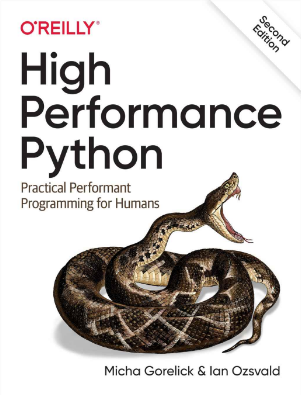Entrepreneurial Geekiness

Selling ProCasts through Flippa.com
A couple of weeks ago I sold ProCasts.co.uk, the screencasting business I built over the last two years. Some of you know that I moved away from the business back at Christmas and left it idle (a rather silly thing to do), here are some notes on how I sold it and how you could sell your business. This is my first business sale, some valuable lessons were learned.
I listed the business on flippa.com a month back, flippa specialises in matching buyers and sellers of domain names and small businesses. Since ProCasts was, after 8 months of inactivity, essentially a website that generated leads with a client list – I figured a listing on flippa would find some interested parties. I didn’t sell The Screencasting Handbook, I’m still happily developing the Handbook’s sales.
The new owners are Tintisha Technologies, a Leicester based video production company who wanted to expand their screencasting brand. Rich of Tintisha discovered the ProCasts sale through flippa by (happy!) accident, made a couple of bids at the end of the auction and came out on top. We completed the handover last week.
The reason for selling ProCasts was simple – I’d moved away from screencasting back at Christmas as I’d decided to return to my historic trade of artificial intelligence research and data science. I knew that a few of ProCasts’ competitors might be interested in the site and that a listing on flippa with money sent through escrow.com would make for a clean, safe sale.
I listed the site as an “Established lead generating screencasting site” with a two week auction. Flippa works differently to eBay – it uses an open auction (though private sales are possible) with a rolling end-time (if a bid is placed within 4 hours of the end of the auction the end time is advanced by another 4 hours).
Take a look at the listing to see the details that I included, I added:
- Full business and site description
- Details of past clients and warm leads
- Bank statements to prove income
- Verified Google Analytics traffic data
- A Transfer Agreement listing all assets/processes for the sale
I made a point of responding to all questions (lots came via the private email channel) and updating the listing with new information. Fortuitously a couple of older leads came back with requests for work during the auction so these ‘very warm leads’ got a mention in the comments too.
At the end of the day the site sold for $4,002 (£2,500), minus the sale fee (£100) and escrow.com’s fees I took away £2,400. Not bad for a site that was otherwise of no value to me but obviously not an ‘interesting exit’.
Here are some of the takehome lessons:
- If you’re selling a business, a pure consultancy (with no consultants) isn’t super interesting to buyers, only to existing market players
- Building a consultancy in a super-small niche (when I started I had 4 US competitors and 0 in the UK) means few buyers when you decide to exit (in fairness – I didn’t build the business to sell it, I know better for next time)
- Design your business with an exit in mind – recurring or passive income has real value to a buyer, make sure you can be removed from the business without damaging it
- A two week auction was fine but four weeks would have made more sense
- Soliciting private bids from competitors should have been done sooner rather than later
- Adding a product or recurring income stream to the business would have added a lot of value (I decided to keep The Screencasting Handbook as an experimental platform)
- BusinessesForSale is an alternative site, I didn’t know about it when I started, their companies tend to have higher value (flippa isn’t really for consultancy businesses, just simple web businesses)
What next?
Some of you know that I’ve been working in the field of artificial intelligence research for industry over the last 10 years (as both senior programmer, product designer and pure r&d bod) in my Mor Consulting. This role is evolving and I’m turning into a “Data Scientist” (the new shiny term for A.I. researchers!).
I’m also building some new IP by way of web services using A.I. technologies, these are designed with an exit in mind (I’m learning!). If you’re curious about using A.I. in industry see my new A.I.Cookbook.
I’m also continuing to develop The Screencasting Handbook, it is a useful experimental platform and I still very much enjoy teaching the art of screencasting.
If you have any questions, ask away.
Ian is a Chief Interim Data Scientist via his Mor Consulting. Sign-up for Data Science tutorials in London and to hear about his data science thoughts and jobs. He lives in London, is walked by his high energy Springer Spaniel and is a consumer of fine coffees.
Saving power around the house with an EnviR
We took delivery of an EnviR from CurrentCost a week back, we’ve been measuring power usage around the house since then. The unit itself is super easy to install – the LCD panel sits on a window sill and the measurement unit clips to the electric meter (it has a 30m range).
Here’s what we measured (kW is kilo Watts, W is Watts, I’m not writing ‘per hour’ for each entry):
- Kettle boiling – 2.9kW/hr (for about 5 minutes)
- Electric oven – 2kW/hr at 220 degrees C (used 30-60 minutes per day)
- 800W Microwave running – 1kW
- Washing machine – 300W
- Electric clothes drier – 282W (used for 2 hours every few days)
- Dehumidifier – 200W (used 1 hour each day)
- Widescreen LCD TV – 90W-140W
- Kitchen downlighters (5) – 112W
- Fridge and freezer running – 94W (turns on and off throughout the day)
- Media PC on and playing a video – 100W
- Media PC on but idle – 40W
- Macbook charger – 40W
- Amplifier on media PC – 20W (idle most of the day)
- Power saving lights – 9W-24W each
- Microwave on standby – 4W
- Dishwasher running – ??
- Toaster running – ??
- DECT phone, broadband router, standby power for media PC – 3W
- The following readings are guestimates – 1W seems to be the lowest reading the EnviR can make
- Coffee grinder on standby – 1W
- Toaster on standby – 1W
- Widescreen LCD TV – 1W
- Electric oven and extractor fan on standby – 1W
Has it changed our behaviour? We’ve started turning off the media PC when not in use (saving 40W/hr overnight). We also turn off the microwave and coffee grinder (saving 5W/hr 23 hours a day) – it is trivial but the grinder gets warm, turning them on just to use them is easy.
We’ve also stopped turning off the TV at night (it uses at most 1W/hr on standby) and turning off the toaster (again 1W/hr at most). I had wondered if the TV consumed a lot of standby power, the toaster has a set of LEDs – both use a trivial amount of power so I’ll ignore them for now.
I had no idea that the kitchen lights were so expensive – we won’t leave them on when not in use any more. I was really surprised by the oven – 2kW/hr swamps the usage of everything else! We really ought to use the outside line for some wet clothes too (but we don’t have back access to the tiny garden so getting there is a bit of a faff…).
The Economist has a nice Watts Up article looking at how people underestimate the expense of some items (I certainly did!) and overestimate the savings they get from turning off things like lightbulbs.
Now the meter sits on a window ledge facing the sofa – we can monitor the house’s power usage and over time we’ll learn to play the game of keeping the numbers as low as seems reasonable. Feedback is a powerful thing!
Ian is a Chief Interim Data Scientist via his Mor Consulting. Sign-up for Data Science tutorials in London and to hear about his data science thoughts and jobs. He lives in London, is walked by his high energy Springer Spaniel and is a consumer of fine coffees.
Weekly python tips (WeeklyPyTips) mailing list
Update – the weekly Python tips list is suspended for now. I’ve ended up way to busy on other projects, I don’t have the 5+ hours to write and publish each tip at present. The list is on hold, it may be reactivated later.
I’ve just written the first few weeks worth of Python Tips for my new list: weeklypytips AT aweber.com or use the form below.
The list is aimed at beginner and intermediate Pythonistas, if you join then each week you’ll receive a Python tip (probably 3-6 paragraphs with source code). I originally announced it in the Python Tutor list.
The first batch of tips cover:
- Downloading files from the Internet in just 2 lines
- Scraping web sites
- IPython introduction
- Iteration
- Controlling hardware (including serial ports, cameras and robots)
I have a long list of topics to cover, if the feedback is positive then I’ll keep adding the tips. To join the list just mail the email address above (the email can be empty), you’ll be asked to confirm your subscription, after that you’ll get one tip per week.
To make it really easy just use the form below: REMOVED
Ian is a Chief Interim Data Scientist via his Mor Consulting. Sign-up for Data Science tutorials in London and to hear about his data science thoughts and jobs. He lives in London, is walked by his high energy Springer Spaniel and is a consumer of fine coffees.
Selling ProCasts
Having built ProCasts during 2009 (from ‘just me’ to a fab team of four) and then letting it sit quietly for the first half of this year I’m now selling the site as a lead-generation opportunity for a lucky fellow screencaster.
The site continues to generate leads each week – this has lead to some odd conversations where I try to explain that I’m not taking on any work – even though the client might be rather desperate for a UK solution. After another odd conversation a week back I decided it was time to pass the site on.
The site is listed at flippa.com, the auction ends in 11 days. Via the message boards I’m having good conversations with existing screencasters and a few new entrants. It feels good to have built an asset that’ll help someone else win more business. Not only does the site generate leads but it also has solid traffic with a Page Rank of 6 and the business gets linked in forums by friendly third parties. Flippa.com has the full details, there’s also a short link on the ProCasts blog.
Personally I’ve returned to my long-term field of artificial intelligence research. The A.I. Cookbook is my new project site, I’m pushing out the ideas that I’ve sat on for years. Times continue to be interesting.
Ian is a Chief Interim Data Scientist via his Mor Consulting. Sign-up for Data Science tutorials in London and to hear about his data science thoughts and jobs. He lives in London, is walked by his high energy Springer Spaniel and is a consumer of fine coffees.
EuroPython 2010
I’m hugely looking forward to EuroPython in Birmingham from Monday. I’m driving up Monday very early (I wish I’d booked the hotel room for Sunday night too…). Browsing through the abstracts I’d say all the following look darned interesting!
- C++ integration
- concurrent sequential processes
- Arduino hacking
- javascript
- OpenData
- aerodynamics
- PyPy and Unladen Swallow
- game programming
- OpenGL
- Pyjamas
- idiomatic Python
- MediaCore
- Twisted and gevent
- science and maths
- SHOGUN machine learning
I’ll bring Headroid along and I hope to organise a Birds of a Feather session on Artificial Intelligence and robotics. If you’re interested in these topics, I’d love to say hi!
Ian is a Chief Interim Data Scientist via his Mor Consulting. Sign-up for Data Science tutorials in London and to hear about his data science thoughts and jobs. He lives in London, is walked by his high energy Springer Spaniel and is a consumer of fine coffees.
Read my book

Oreilly High Performance Python by Micha Gorelick & Ian Ozsvald AI Consulting
Co-organiser
Trending Now
1Leadership discussion session at PyDataLondon 2024Data science, pydata, RebelAI2What I’ve been up to since 2022pydata, Python3Upcoming discussion calls for Team Structure and Buidling a Backlog for data science leadsData science, pydata, Python4My first commit to PandasPython5Skinny Pandas Riding on a Rocket at PyDataGlobal 2020Data science, pydata, PythonTags
Aim Api Artificial Intelligence Blog Brighton Conferences Cookbook Demo Ebook Email Emily Face Detection Few Days Google High Performance Iphone Kyran Laptop Linux London Lt Map Natural Language Processing Nbsp Nltk Numpy Optical Character Recognition Pycon Python Python Mailing Python Tutorial Robots Running Santiago Seb Skiff Slides Startups Tweet Tweets Twitter Ubuntu Ups Vimeo Wikipedia

